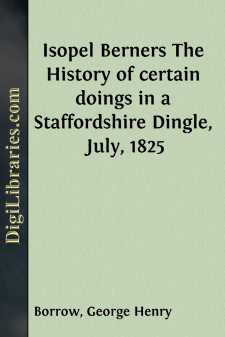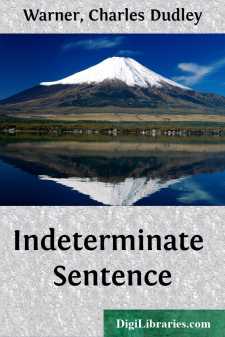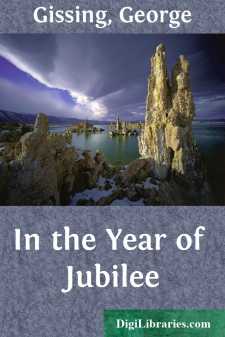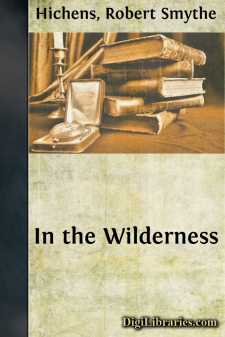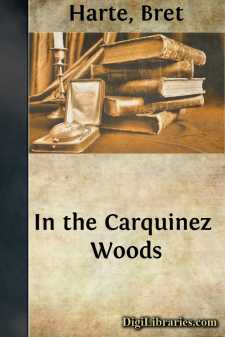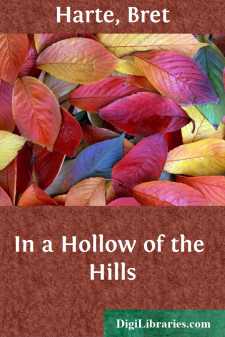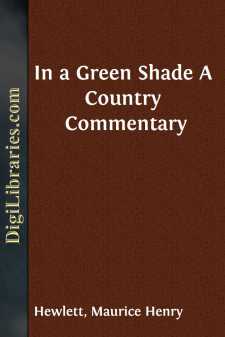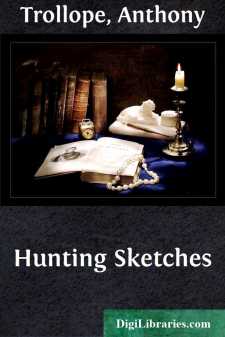Literary Collections
- American 84
- Ancient, Classical & Medieval 14
- Asian 1
- Australian & Oceanian 1
- Canadian 55
- Continental European 121
- English, Irish, Scottish, Welsh 179
- Essays 160
- General 24
- Letters 46
- Middle Eastern 1
Literary Collections Books
Sort by:
INTRODUCTION. I. The last century was yet in its infancy when the author of The Romany Rye first saw the light in the sleepy little East Anglian township of East Dereham, in the county distinguished by Borrow as the one in which the people eat the best dumplings in the world and speak the purest English. “Pretty quiet D[ereham]” was the retreat in those days of a Lady Bountiful in the person of...
more...
The problem of dealing with the criminal class seems insolvable, and it undoubtedly is with present methods. It has never been attempted on a fully scientific basis, with due regard to the protection of society and to the interests of the criminal. It is purely an economic and educational problem, and must rest upon the same principles that govern in any successful industry, or in education, and that...
more...
by:
George Gissing
CHAPTER 1 At eight o'clock on Sunday morning, Arthur Peachey unlocked his front door, and quietly went forth. He had not ventured to ask that early breakfast should be prepared for him. Enough that he was leaving home for a summer holiday—the first he had allowed himself since his marriage three years ago. It was a house in De Crespigny Park; unattached, double-fronted, with half-sunk basement,...
more...
CHAPTER I Amedeo Dorini, the hall porter of the Hotel Cavour in Milan, stood on the pavement before the hotel one autumn afternoon in the year 1894, waiting for the omnibus, which had gone to the station, and which was now due to return, bearing—Amedeo hoped—a load of generously inclined travelers. During the years of his not unpleasant servitude Amedeo had become a student of human nature. He had...
more...
by:
Edward Dyson
I THE night was bright and cool, and the old East Indiaman moved slowly on the heaving bosom of the ocean, under a strong full moon, like a wind-blown ghost to whose wanderings there had been no beginning and could be no end—so small, so helpless she seemed between the two infinities of sea and sky. There was no cloud to break the blue profundity of heaven, no line of horizon, no diversity in the...
more...
by:
Bret Harte
CHAPTER I. The sun was going down on the Carquinez Woods. The few shafts of sunlight that had pierced their pillared gloom were lost in unfathomable depths, or splintered their ineffectual lances on the enormous trunks of the redwoods. For a time the dull red of their vast columns, and the dull red of their cast-off bark which matted the echoless aisles, still seemed to hold a faint glow of the dying...
more...
by:
Bret Harte
CHAPTER I. It was very dark, and the wind was increasing. The last gust had been preceded by an ominous roaring down the whole mountain-side, which continued for some time after the trees in the little valley had lapsed into silence. The air was filled with a faint, cool, sodden odor, as of stirred forest depths. In those intervals of silence the darkness seemed to increase in proportion and grow...
more...
IN A GREEN SHADE ROUND ABOUT A PREFACE The title has become equivocal, since there are more green shades in employment now than were dreamed of by Andrew Marvell. Science is a great maker of homophones, without respect for the poets. There is, for instance, the demilune of lined buckram borne by the weak-eyed on their foreheads, the phylactery of the have-beens—I lay myself open to be believed a...
more...
ON BEING IDLE. Now, this is a subject on which I flatter myself I really am au fait. The gentleman who, when I was young, bathed me at wisdom's font for nine guineas a term—no extras—used to say he never knew a boy who could do less work in more time; and I remember my poor grandmother once incidentally observing, in the course of an instruction upon the use of the Prayer-book, that it was...
more...
by:
Anthony Trollope
THE MAN WHO HUNTS AND DOESN'T LIKE IT. It seems to be odd, at first sight, that there should be any such men as these; but their name and number is legion. If we were to deduct from the hunting-crowd farmers, and others who hunt because hunting is brought to their door, of the remainder we should find that the "men who don't like it" have the preponderance. It is pretty much the same,...
more...


